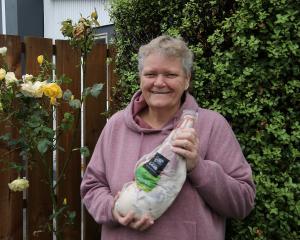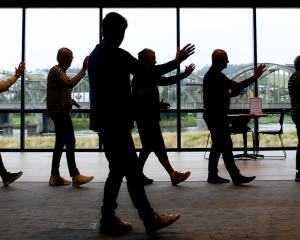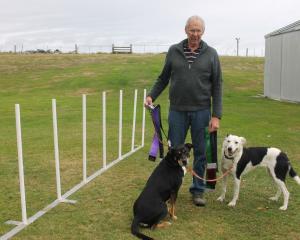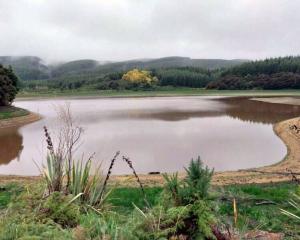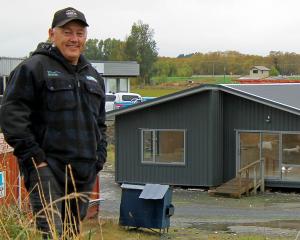
"The water is so bad out here the dogs won’t drink it," Mallard Dr resident Peter Smithies said.
He buys bottled water for drinking.
Nearby resident Melissa Tait-Middleditch said it appeared water infrastructure could not cope with the demands placed on it.
Household filters were quickly clogged up.
Lately, the supply has dried up, in the wake of severe weather.
Waihola residents were asked to conserve water from July 22 and that message was reinforced last week while the Clutha District Council worked to repair a break in the mains pipe supplying the town.
A boil-water notice for Waihola on Thursday was followed by the water main breaking again the next day.
Clutha Mayor Bryan Cadogan said contractors worked through the weekend on repairs.
A tanker has been stationed at the Waihola Community Hall.
The township is supplied a restricted amount of water through the North Bruce rural water scheme, but the longer-term plan is to run a pipe from Milton to Waihola.
Mr Cadogan rejected assertions Waihola residents had been receiving a raw deal.
District-wide funding had enabled upgrades to happen in small communities and the planned pipeline from Milton was a $3.2million project, he said.
Residents remain unimpressed.
"We pay rates and can’t even drink our own water," Mrs Tait-Middleditch said.
"A lot of people are very, very frustrated."
Mr Smithies said he intended to get in his nomination this week to stand for the council.
"Basic infrastructure is not up to scratch," he said.
"What’s the point of putting water reticulation through a subdivision if you can’t use it?"
Each dwelling in Waihola connected to the North Bruce supply is allowed up to 1000 litres a day and is required to have storage of 2000 litres.
However, when the council carried out inspections this year, it found 81 of 191 properties had no restrictors in place.
That was well on the way to being remedied by mid-February this year.
The Milton pipeline project is due to go out to tender before next year.
The Black Swan Cafe and Waihola Motel has incurred bills in the meantime.
The business has in operation a five-layered filtration system — a carbon filter, two polypropylene filters, an ultraviolet filter and a charcoal filter.
"We give up on the council. We do it ourselves," business owner Shirene dela Concepcion said.
Complaints to the council about water quality previously did not appear to yield results.
"We are going to review if we can move off the scheme water," Mrs de la Concepcion said.
After the latest problem, she made a series of trips to the community hall at the weekend to fill up.
"We feel stronger now," Mrs de la Concepcion said.
The council has said the North Bruce rural water scheme is at full capacity and, under its resource consent, it cannot take any more water from the source.
The council recognises Waihola needs an upgraded water supply to meet demand for further development in the area.
Mr Cadogan said Waihola had been "tagged on" to a rural water scheme and this was no longer suitable, which was why the pipe from Milton was coming.
Water standards were becoming more stringent and the costs of meeting them were escalating, he said.
Such challenges were the genesis of Three Waters reform, he said.
Mr Cadogan was not comfortable with the way some aspects of reform had been driven by the Government, but he said the need for serious investment had been proven and a change of structure was necessary.




